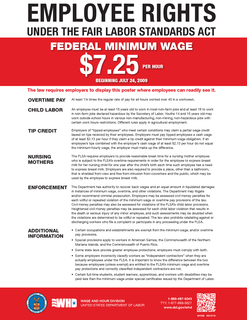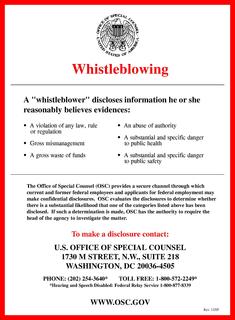The case
The applicant, Keech, was injured at work at the age of 66. RiskCover, the insurance company of the Metropolitan Health Service, accepted liability and paid compensation under the Workers’ Compensation and Injury Management Act 1981 (WA) (the WA Act). The WA Act provided different schemes of payment whereby workers injured before attaining the age of 64 would be entitled to compensation until they turned 65, and workers injured after attaining this age would be entitled to compensation for a year after the date of the injury.

King Edward Memorial Hospital for Women (KEMH) is a hospital located in Subiaco, Western Australia. It is Western Australia's largest maternity hospital and only referral centre for complex pregnancies.
Public liability is part of the law of tort which focuses on civil wrongs. An applicant usually sues the respondent under common law based on negligence and/or damages. Claims are usually successful when it can be shown that the owner/occupier was responsible for an injury, therefore they breached their duty of care.

Workers' compensation is a form of insurance providing wage replacement and medical benefits to employees injured in the course of employment in exchange for mandatory relinquishment of the employee's right to sue their employer for the tort of negligence. The trade-off between assured, limited coverage and lack of recourse outside the worker compensation system is known as "the compensation bargain". One of the problems that the compensation bargain solved is the problem of employers becoming insolvent as a result of high damage awards. The system of collective liability was created to prevent that, and thus to ensure security of compensation to the workers. Individual immunity is the necessary corollary to collective liability.
Keech argued that by paying her compensation for the period prescribed by the WA Act, the Metropolitan Health Service had treated her less favourably than a younger employee who incurred a workplace injury at the same time as she did. She also argued that the conduct of the Metropolitan Health Service was not exempt from the Age Discrimination Act as it was not in direct compliance with the WA Act - that is, the WA Act prescribed a date at which entitlements to compensation could cease, but it did not oblige employers to stop paying at this time.
Overtime is the amount of time someone works beyond normal working hours. The term is also used for the pay received for this time. Normal hours may be determined in several ways:
The Federal Insurance Contributions Act is a United States federal payroll contribution directed towards both employees and employers to fund Social Security and Medicare—federal programs that provide benefits for retirees, people with disabilities, and children of deceased workers.
An independent contractor is a natural person, business, or corporation that provides goods or services to another entity under terms specified in a contract or within a verbal agreement. Unlike an employee, an independent contractor does not work regularly for an employer but works as and when required, during which time they may be subject to law of agency. Independent contractors are usually paid on a freelance basis. Contractors often work through a limited company or franchise, which they themselves own, or may work through an umbrella company.

United States labor law sets the rights and duties for employees, labor unions, and employers in the United States. Labor law's basic aim is to remedy the "inequality of bargaining power" between employees and employers, especially employers "organized in the corporate or other forms of ownership association". Over the 20th century, federal law created minimum social and economic rights, and encouraged state laws to go beyond the minimum to favor employees. The Fair Labor Standards Act of 1938 requires a federal minimum wage, currently $7.25 but higher in 28 states, and discourages working weeks over 40 hours through time-and-a-half overtime pay. There are no federal or state laws requiring paid holidays or paid family leave: the Family and Medical Leave Act of 1993 creates a limited right to 12 weeks of unpaid leave in larger employers. There is no automatic right to an occupational pension beyond federally guaranteed social security, but the Employee Retirement Income Security Act of 1974 requires standards of prudent management and good governance if employers agree to provide pensions, health plans or other benefits. The Occupational Safety and Health Act of 1970 requires employees have a safe system of work.
Pregnancy discrimination is a type of employment discrimination that occurs when expectant women are fired, not hired, or otherwise discriminated against due to their pregnancy or intention to become pregnant. Common forms of pregnancy discrimination include not being hired due to visible pregnancy or likelihood of becoming pregnant, being fired after informing an employer of one's pregnancy, being fired after maternity leave, and receiving a pay dock due to pregnancy. Convention on the Elimination of All Forms of Discrimination against Women prohibits dismissal on the grounds of maternity or pregnancy and ensures right to maternity leave or comparable social benefits. The Maternity Protection Convention C 183 proclaims adequate protection for pregnancy as well. Though women have some protection in the United States because of the Pregnancy Discrimination Act of 1978, it has not completely curbed the incidence of pregnancy discrimination. The Equal Rights Amendment could ensure more robust sex equality ensuring that women and men could both work and have children at the same time.

The Workplace Safety and Insurance Board (WSIB); French: Commission de la sécurité professionnelle et de l'assurance contre les accidents du travail) is Ontario's workplace compensation board. As an agency of the Ontario government, the WSIB operates "at arm's length" from the Ministry of Labour and is solely funded by employer premiums, administration fees, and investment revenue. The WSIB is one of the largest compensation boards in North America and is primarily responsible for administering and enforcing the Workplace Safety and Insurance Act (WSIA).

The Federal Employers' Liability Act (FELA), 45 U.S.C. § 51 et seq. (1908), is a United States federal law that protects and compensates railroaders injured on the job.
The WorkCover Authority of New South Wales or WorkCover NSW was a New South Wales Government agency established in 1989. The agency creates regulations to promote productive, healthy and safe workplaces for workers and employers in New South Wales. The agency formed part of the Safety, Return to Work and Support Division established pursuant to the Safety, Return to Work and Support Board Act, 2012 (NSW).
WorkSafe Victoria is the trading name of the Victorian WorkCover Authority, a statutory authority of the state government of Victoria, Australia.

The Fair Labor Standards Act of 1938 29 U.S.C. § 203 (FLSA) is a United States labor law that creates the right to a minimum wage, and "time-and-a-half" overtime pay when people work over forty hours a week. It also prohibits most employment of minors in "oppressive child labor". It applies to employees engaged in interstate commerce or employed by an enterprise engaged in commerce or in the production of goods for commerce, unless the employer can claim an exemption from coverage.
The California Labor Code, more formally known as "the Labor Code", is a collection of civil law statutes for the State of California. The code is made up of statutes which govern the general obligations and rights of persons within the jurisdiction of the State of California.
The Virginia Workers' Compensation Commission (VWC) is an agency of the U.S. state of Virginia that oversees the resolution of workers' compensation claims brought in that state, in accordance with the Virginia Workers' Compensation Act. The Commission has exclusive jurisdiction to adjudicate such claims. Its decisions may be appealed to the Virginia Court of Appeals. The Commission is headed by three Commissioners and an Executive Director. The Commissioners are chosen by the Virginia General Assembly and serve staggered six-year terms. R. Ferrell Newman, Wesley G. Marshall, and Robert A. Rapaport currently serve as Commissioners. The Commissioners elect a Chairman for a term of three years. Mr. Newman is currently the Chairman and Evelyn McGill is the Executive Director. The Commission is headquartered in Richmond, Virginia, but has offices and hearing locations at various places around the state.
Lemmerman v. A.T. Williams Oil Co., 350 S.E.2d 83 (1986) was a case before the Supreme Court of North Carolina, United States, which hinged on the question of whether the plaintiff met the definition as an "employee" of the A.T. Williams Oil Co. under the state's Workers' Compensation Act.

Anti-discrimination laws in Brazil are present in the Constitution of Brazil, in the labour law, in the child and adolescent law, in the ageing law, and in the penal code.

A whistleblower is a person who exposes any kind of information or activity that is deemed illegal, unethical, or not correct within an organization that is either private or public. The Whistleblower Protection Act was made into federal law in the United States in 1989.
Wage theft is the denial of wages or employee benefits rightfully owed an employee. It can be conducted by employers in various ways, among them failing to pay overtime; violating minimum-wage laws; the misclassification of employees as independent contractors, illegal deductions in pay; forcing employees to work "off the clock", or simply not paying an employee at all.

Marine Services International Ltd v Ryan Estate 2013 SCC 44 is a leading case of the Supreme Court of Canada concerning the coexistence of Canadian maritime law with provincial jurisdiction over property and civil rights, and it marks a further restriction upon the doctrine of interjurisdictional immunity in Canadian constitutional jurisprudence.
In law, wrongful dismissal, also called wrongful termination or wrongful discharge, is a situation in which an employee's contract of employment has been terminated by the employer, where the termination breaches one or more terms of the contract of employment, or a statute provision or rule in employment law. Laws governing wrongful dismissal vary according to the terms of the employment contract, as well as under the laws and public policies of the jurisdiction.












